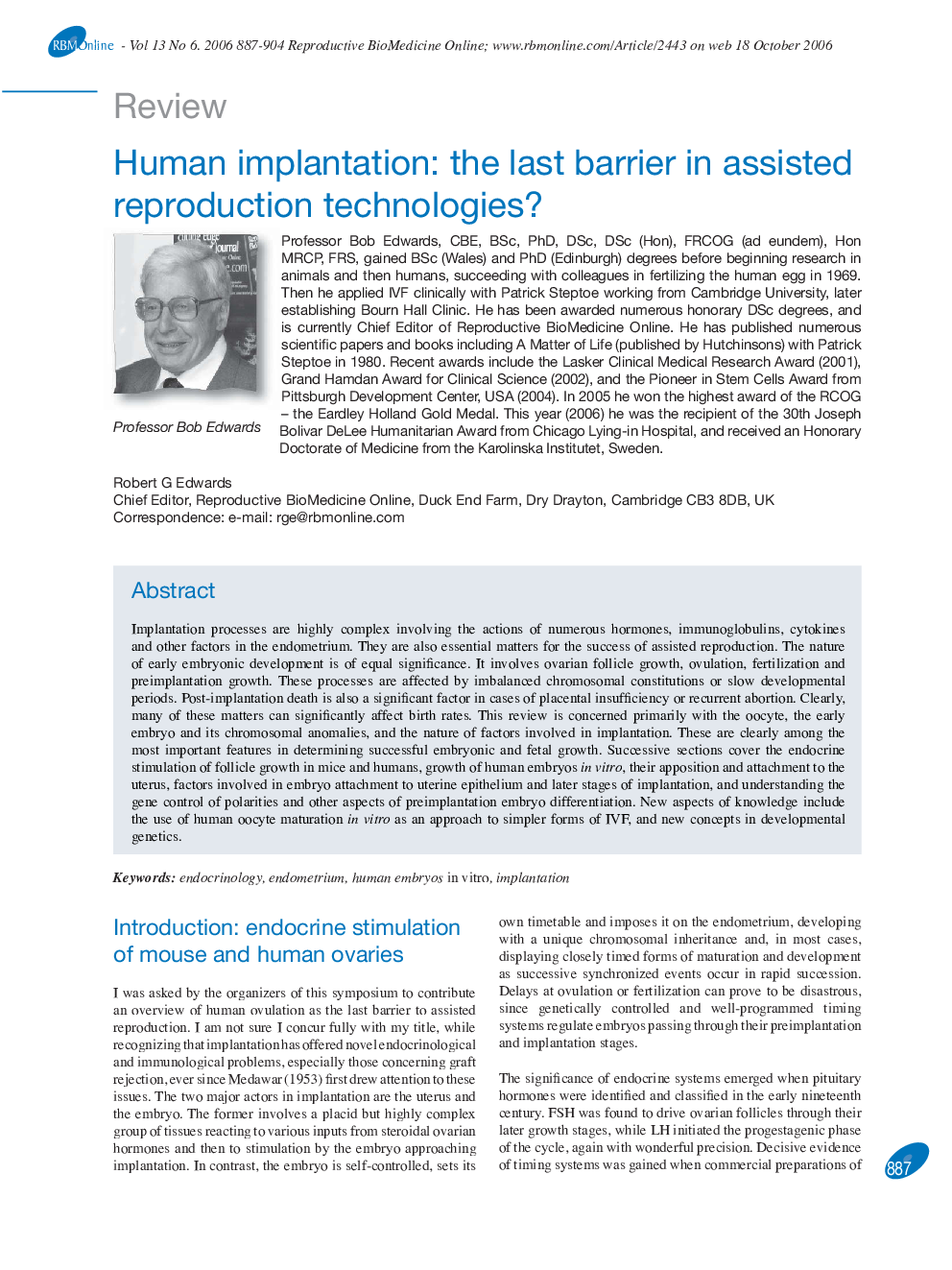| Article ID | Journal | Published Year | Pages | File Type |
|---|---|---|---|---|
| 3973405 | Reproductive BioMedicine Online | 2006 | 18 Pages |
Implantation processes are highly complex involving the actions of numerous hormones, immunoglobulins, cytokines and other factors in the endometrium. They are also essential matters for the success of assisted reproduction. The nature of early embryonic development is of equal significance. It involves ovarian follicle growth, ovulation, fertilization and preimplantation growth. These processes are affected by imbalanced chromosomal constitutions or slow developmental periods. Post-implantation death is also a significant factor in cases of placental insufficiency or recurrent abortion. Clearly, many of these matters can significantly affect birth rates. This review is concerned primarily with the oocyte, the early embryo and its chromosomal anomalies, and the nature of factors involved in implantation. These are clearly among the most important features in determining successful embryonic and fetal growth. Successive sections cover the endocrine stimulation of follicle growth in mice and humans, growth of human embryos in vitro, their apposition and attachment to the uterus, factors involved in embryo attachment to uterine epithelium and later stages of implantation, and understanding the gene control of polarities and other aspects of preimplantation embryo differentiation. New aspects of knowledge include the use of human oocyte maturation in vitro as an approach to simpler forms of IVF, and new concepts in developmental genetics.
